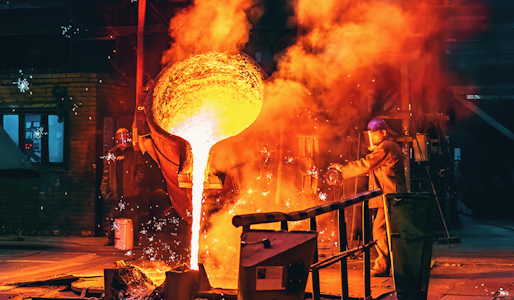Thermal Energy Storage to Decarbonize Industrial Heating

IDTechEx forecasts that by 2034, the industrial thermal energy storage market will reach US$4.5B by 2034.
Industrial emissions are responsible for approximately 25% of global emissions, given that 90% of industrial heat production processes use fossil fuels. Therefore, there is an imperative need to decarbonize this sector of industry. In fact, government and state-led initiatives are starting to directly provide funding to players developing industrial heating decarbonization technologies, in which thermal energy storage (TES) could be included.
Several key players dispersed across Europe, the US, and Australia are developing and commercializing various TES technologies, including sensible and latent heat systems. Electro-thermal energy storage (ETES) technologies focus more on electricity generation and are likely to be used for long duration energy storage (LDES) applications. Thermochemical energy storage (TCES) technologies offer potentially higher energy densities and lower thermal loss over time compared sensible and latent heat technologies, but are generally in a far earlier stage of development. This webinar explains the advantages, disadvantages and commercial readiness of TES technologies, and long-term application trends.
Many important factors must be considered when deploying a TES technology in a setting for industrial heating. This includes cost, thermal storage materials, system lifetime, round-trip efficiency, energy density, as well as the provision of heat at constant working parameters to a continuous industrial heating process (temperature, pressure, flowrate). The maximum temperature of heat stored and supplied will limit certain TES technologies' capabilities to be used in higher-temperature industrial heating applications.
This webinar, presented by Technology Analyst Conrad Nichols, gives an overview of the emerging industrial thermal energy storage market and technologies, drawing upon research from IDTechEx's brand new report, "Thermal Energy Storage 2024-2034: Technologies, Players, Markets, and Forecasts".
This webinar will cover:
- Demand and key drivers for industrial thermal energy storage.
- Thermal energy storage technology overview including working principles, technology considerations (cost, materials, round-trip efficiency, etc.), ETES, TCES, and commercial readiness of these technologies.
- Key existing and emerging thermal energy storage applications.
- Market overview and key projects.
- IDTechEx's outlook and conclusions.
Presenter
Registration
We will be hosting the same webinar 3 times in one day, so please join which ever session is the most convenient for you.
Spaces are limited
Spaces are limited
